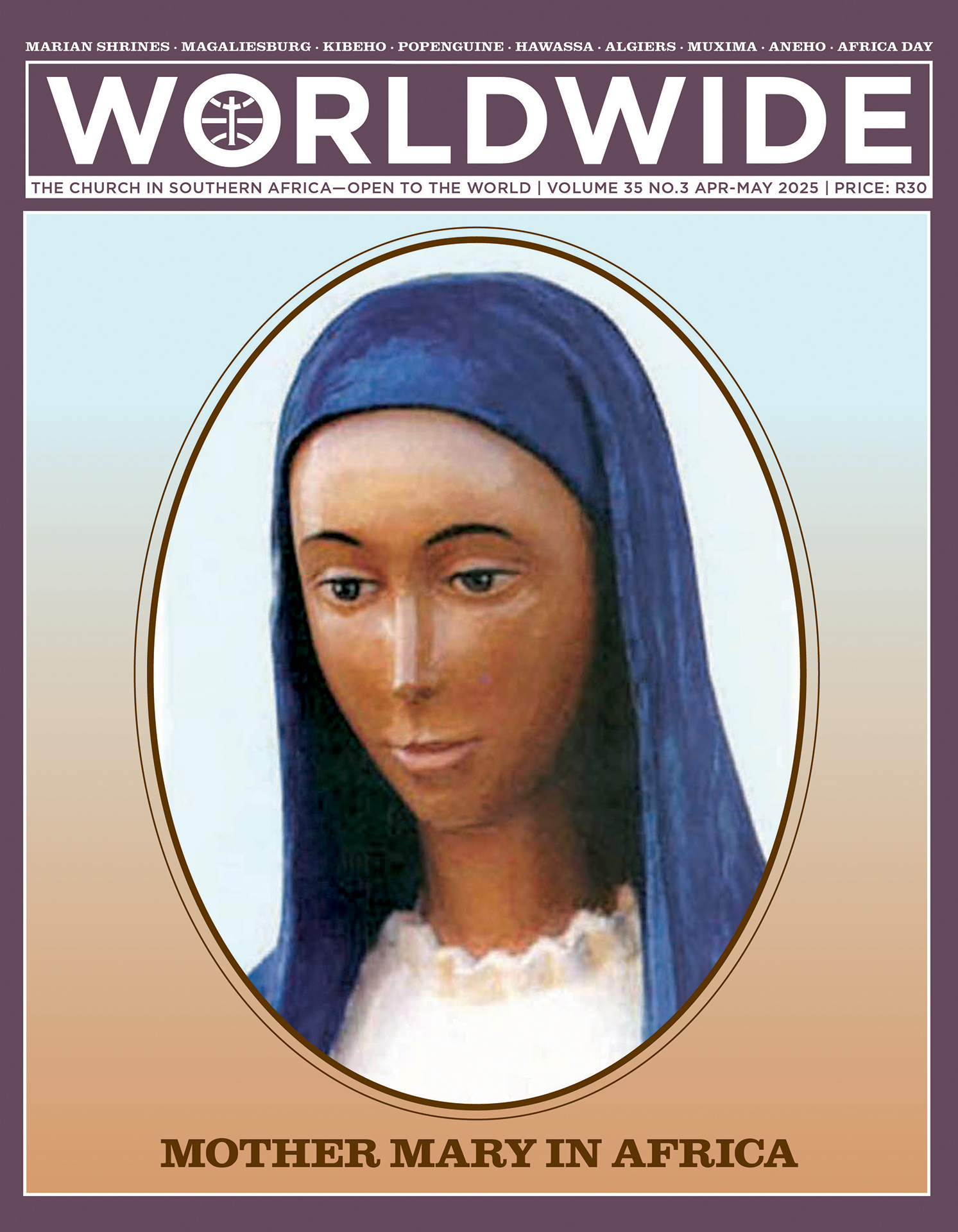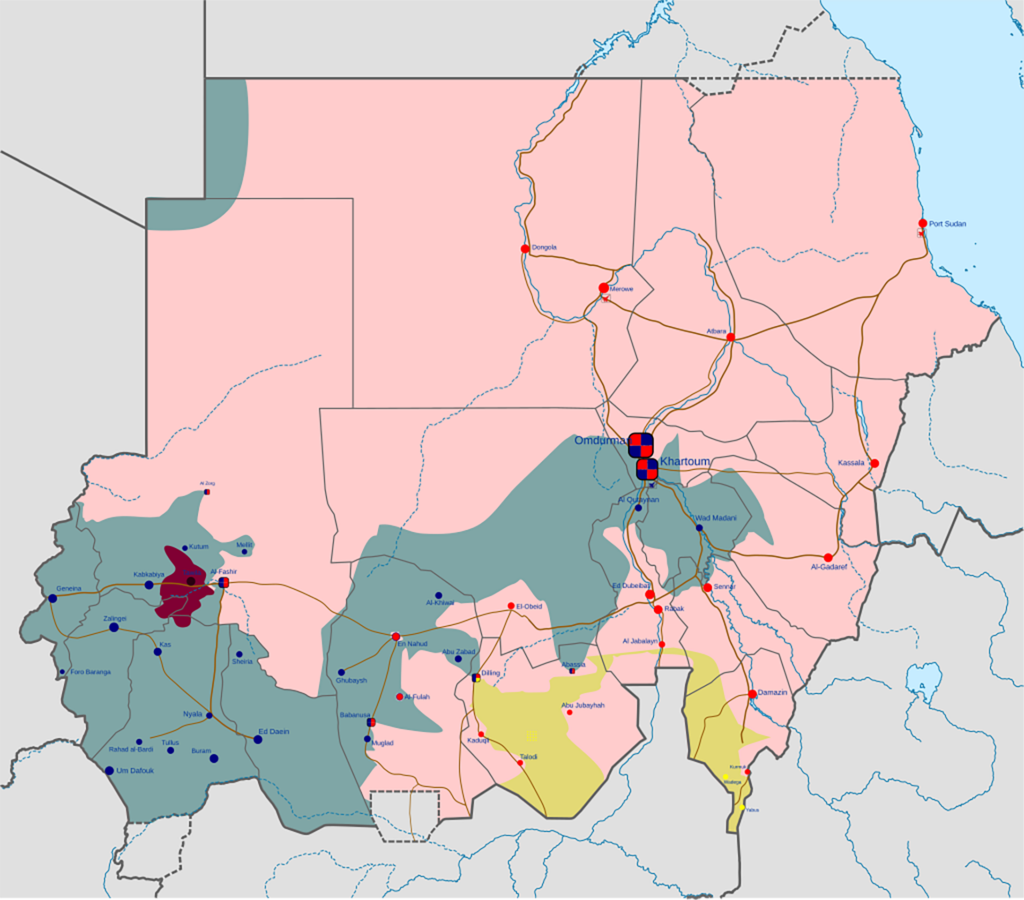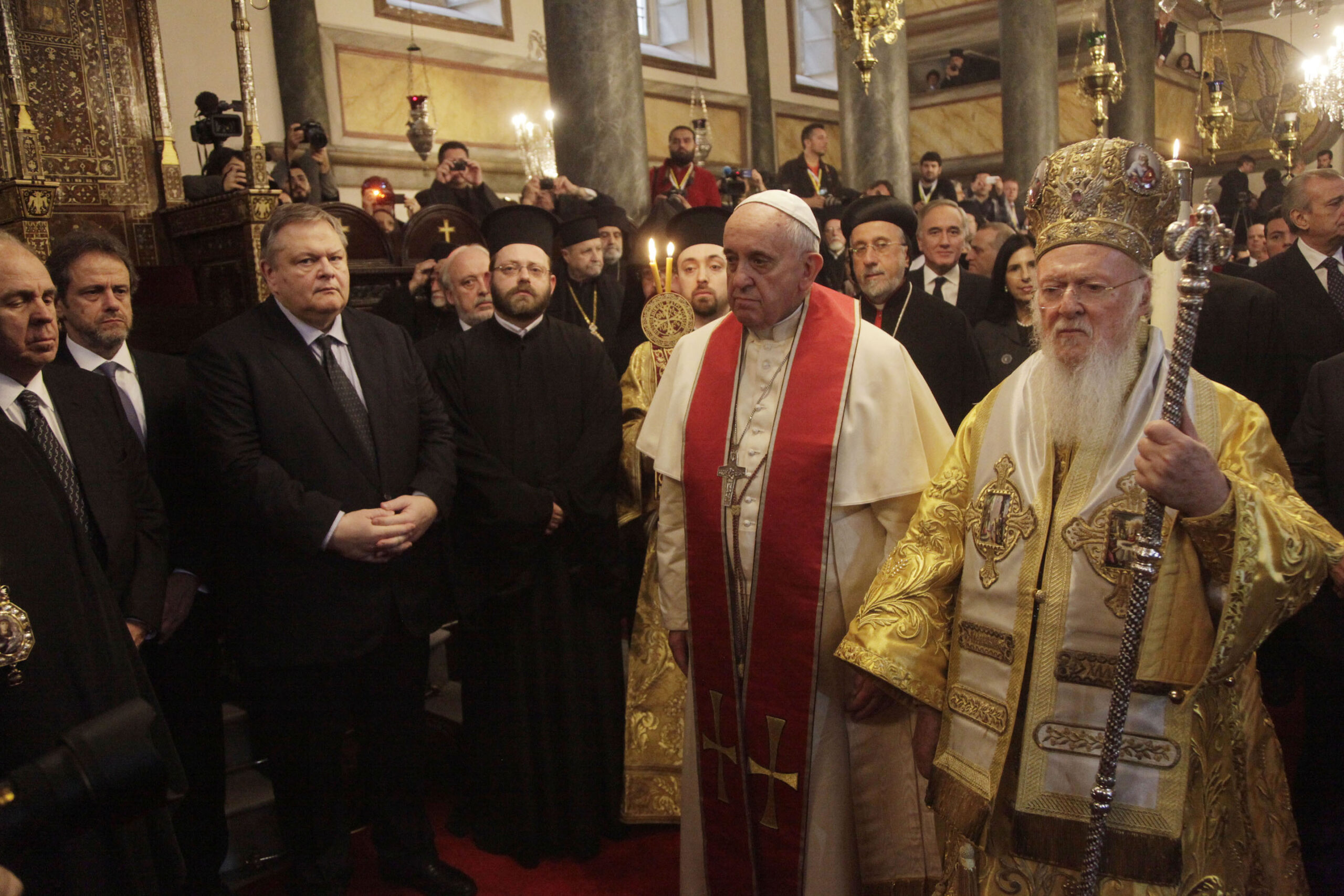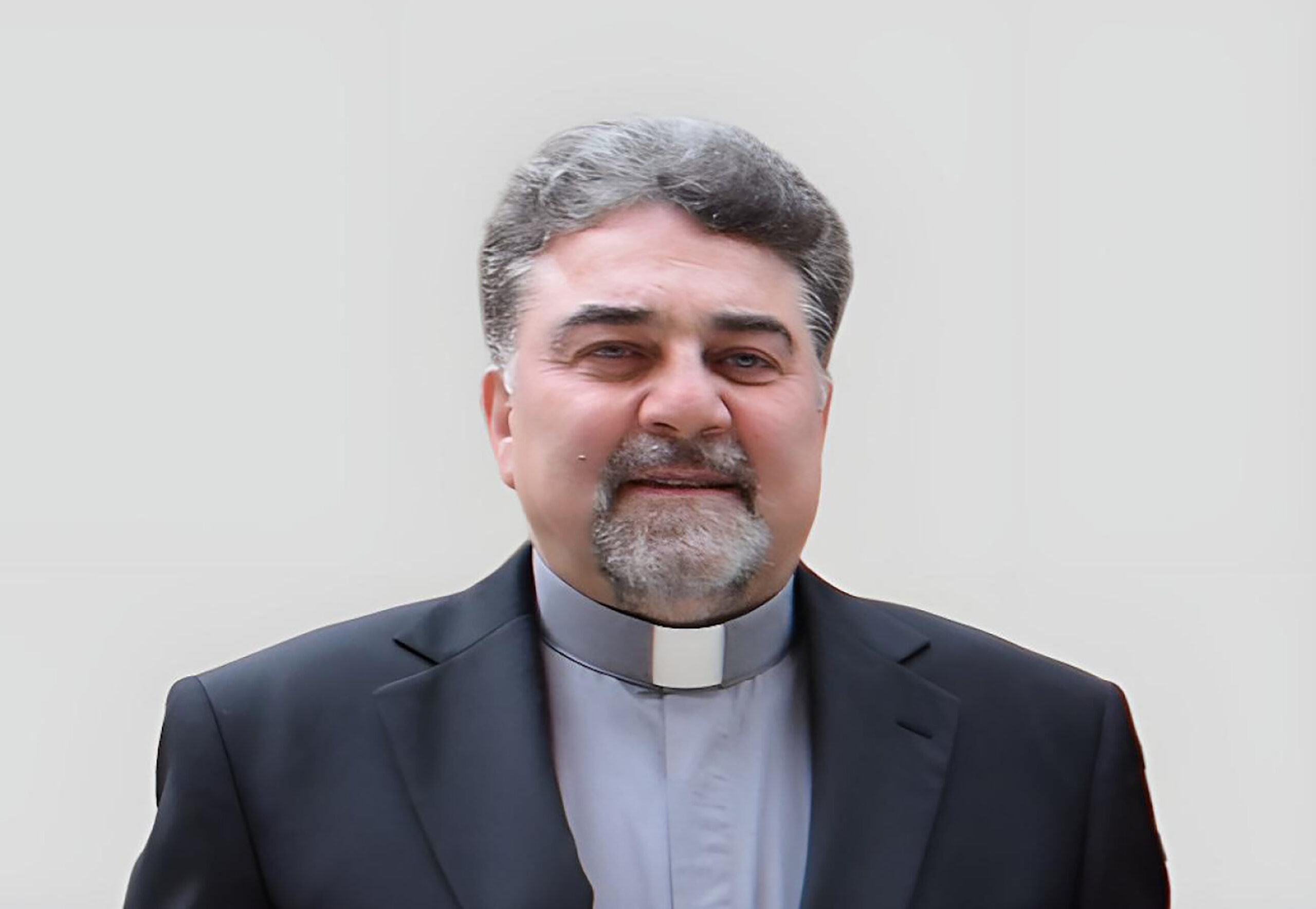
MOTHER MARY IN AFRICA
Head of the Statue of Mother Mary at Kibeho, Rwanda, carved by Marek Kowalski and based on the models of Jean Pierre Sibomana and Faustin Kayitana. In the statue, Mother Mary holds the Seven Sorrows Chaplet, a Marian devotion reintroduced to the Catholic community by Our Lady of Kibeho.
Kibeho is the only Marian apparition on African soil, officially recognized by the Church. Mother Mary’s requests for prayers preluded the 1994 Genocide.
RADAR

CIVIL WAR IN SUDAN
The Sudanese war is another forgotten conflict which the general media hardly speak about. It is the battered land to which St Daniel Comboni dedicated his life. The conflict deserves our attention and our prayers for a peaceful solution.
BY THE CENTRE FOR PREVENTIVE ACTION
As the civil war enters its third year, Sudan’s two warring factions remain locked in a deadly power struggle. Death toll estimates vary widely, with some sources suggesting as many as one hundred and fifty thousand people killed since the conflict began on 15 April 2023. More than fourteen million have been uprooted, giving rise to the worst displacement crisis in the world. Nearly three million relocated Sudanese have fled to unstable areas in Chad, Ethiopia, and South Sudan, overrunning refugee camps. The UN continues to plead for more support as more than thirty million people need humanitarian assistance, and deteriorating food security risks are triggering the “world’s largest hunger crisis.”
Meanwhile, mediation efforts have failed to produce results as the leaders of the Sudanese Armed Forces (SAF) and Rapid Support Forces (RSF) refuse to halt their violence, and regional and international actors have taken sides in the war.
The Omar al-Bashir era
The dictatorship of Omar al-Bashir defined Sudan’s post-colonial period. Bashir seized power in a 1989 coup after serving in the Egyptian military during condominium rule and later as an officer in the Sudanese Armed Forces (SAF). As president, he oversaw the Second Sudanese Civil War, the secession of South Sudan, and the conflict in Darfur. The Darfur war, which broke out in 2003, was later condemned by the International Criminal Court (ICC) as genocide targeting non-Arab populations, including the Fur, Zaghawa, and Masalit peoples in western Sudan. During his regime, Bashir enforced a strict interpretation of ‘sharia’ or Islamic law, employed private militias and morality police to enforce his decrees, and persecuted Christianity, Sunni apostasy, Shiism, and other minority religious groups.
Bashir’s regime survived until 2019. By the final decade of his presidency, Bashir was facing increasing popular protests calling for democracy and access to essential services. The revolution culminated in an April 2019 coup, which was carried out jointly by the SAF—led by General Abdel Fattah al-Burhan—and the Rapid Security Forces (RSF), a militia led by Mohamed Hamdan “Hemedti” Dagalo.
The RSF is the most powerful paramilitary group created during the Bashir era to suppress southern Sudanese rebels and fight in the Darfur region, where the group carried out brutal attacks and committed vicious crimes. The first two years of the conflict in Darfur claimed over two hundred thousand lives, with over one hundred thousand more since 2005. Since 2013, with Bashir’s support, the RSF has been employed as a border guard force, a source of mercenaries for the Saudi coalition in the Yemeni Civil War, and a hired security force to repress popular uprisings. RSF leader Hemedti became one of Sudan’s wealthiest men by seizing control of gold mines.
The coup
Before 2019, Bashir hired the RSF to protect him from coups and assassination attempts. Despite this, the RSF ultimately joined forces with the SAF in the 2019 coup to oust Bashir and establish a transitional government and a new constitution. Burhan led the Transitional Sovereignty Council with Hemedti as his deputy, alongside other military leaders and several civilians.
Among the civilian members, the council chose Abdalla Hamdok, an economist and development expert, as prime minister. However, the SAF and RSF orchestrated a coup against Hamdok in October 2021 and suspended the constitution. Mass demonstrations demanding a return to civilian control intensified in Khartoum.
Hamdok was briefly reinstated as prime minister in November 2021. However, he ultimately resigned in January 2022, as Sudanese protestors were dissatisfied with the terms of his reinstatement and the violent actions of security forces, who had repeatedly beaten and killed protestors. Since Hamdok’s resignation, Sudan has had no effective civilian leadership, with Burhan operating as de facto head of state. By early 2022, Burhan and Hemedti were left at the helm of the government, with the power to direct its democratic transition.
The December 2022 deal
Negotiations throughout 2022 over the future of Sudanese governance culminated in a December 2022 deal laying the groundwork for a two-year transition to civilian leadership and national elections. Many citizens rejected the plan. Unrest broke out again and persisted from December 2022 into the spring of 2023, leading to more violent crackdowns on protestors.
Major sticking points emerged as the transitional government began to negotiate a plan. The deal called for the eventual integration of the RSF into Sudan’s legitimate armed forces (SAF) under civilian leadership. However, the deal did not specify a timeframe for the RSF’s integration. The two leaders missed an early 2023 deadline to determine conditions for the agreement’s implementation.
The two factions open conflict
As the months passed, the power struggle between Burhan’s SAF and Hemedti’s RSF continued to stall the country’s transition efforts. By early April 2023, SAF troops lined the streets of Khartoum, and RSF soldiers were deployed throughout Sudan. On April 15, a series of explosions shook Khartoum, along with heavy gunfire. SAF and RSF leadership both accused each other of firing first. The involvement of the Wagner Group and foreign military influence, notably from the United Arab Emirates (UAE), has deepened the rivalry at the core of Sudan’s crisis.
The fighting in Khartoum has persisted, and incidents of violence across the country as well as in Darfur, have continued to rise.
Ethnic cleansing
Several NGOs have documented evidence of numerous mass atrocities committed throughout the conflict, prompting accusations of ethnic cleansing and war crimes in western Darfur. A statement made by the UN in January indicated that between ten and fifteen thousand people were killed in 2023 due to ethnic violence committed by the RSF and its allies in West Darfur.
Humanitarian access remains a crucial concern for many international actors, which called on the UN Security Council to authorize aid deliveries through Chad. Conditions in the country were already poor before April 2023 and have worsened since. In August 2023, the United Nations stated that the conflict in Sudan was “spiralling out of control” as refugees continued to flee the country and the health system collapsed, raising fears of disease outbreaks. The displacement crisis is especially concerning given the instability of its bordering countries. In consequence, the UN Humanitarian and Emergency Relief Chief dubbed Sudan “one of the worst humanitarian nightmares in recent history.”
Recent Developments
In the latter half of 2024, the SAF launched a coordinated offensive around the three metropolitan cities of Khartoum, Omdurman, and Bahri, catching RSF forces off guard. The SAF has seized significant territory in the capital for the first time since the RSF took control at the onset of the war. As 2025 began, fighting in Khartoum state intensified, with the SAF recapturing key areas around the capital. In January, the SAF drove RSF forces out of Omdurman and regained near-total control of Bahri. Additionally, in February 2025, SAF forces ended the RSF’s two-year siege of Obeid. (Ed: On Wednesday 26 March, according to Aljazeera sources, army chief Abdel Fattah al-Burhan declared that the capital, Khartoum, was “free” after his forces recaptured the airport from the RSF, taking full control of the city and forcing paramilitary troops to flee southward).
In western Sudan, the RSF has continued its attacks on local rebel forces, SAF personnel, and civilians. El Fasher, the capital of North Darfur, remains the centre of fighting between the SAF and its allies and the RSF. RSF targeting of non-Arab ethnic groups in Darfur has raised concerns of genocide, evidenced by the RSF attack and looting of El Fasher’s primary hospital. The Trump administration’s decision to freeze humanitarian aid threatens to worsen malnutrition and famine in the region.
In February 2025, RSF leadership and its allies gathered in Nairobi, Kenya, to advance their plan to create a parallel government. They signed a charter outlining key aspects of a post-war government, including secularism, democracy, a decentralized structure, and a unified national army. In early March, the RSF signed a new constitution, signalling its intent to garner diplomatic leverage and legitimacy. That same month, the Sudanese government filed a complaint to the International Court of Justice, accusing the UAE of complicity in genocide due to its arms support for the RSF.
Available at: www.cfr.org/global-conflict-tracker


